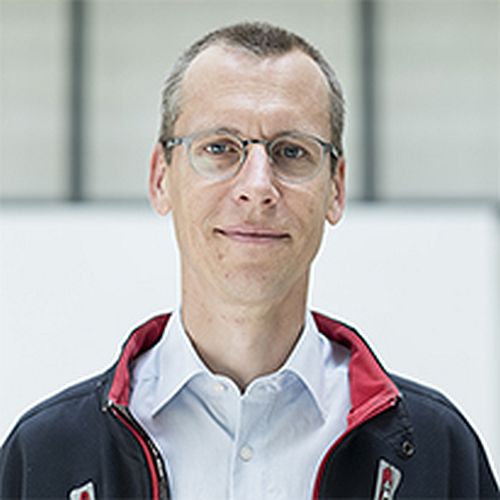Interface in person
Jörg Niewöhner brings disciplines together

What are we able to know? A critical mind researches environmental risks and risk perception
Jörg Niewöhner has always been interested in environmental affairs. That is why he studied and wrote his PhD thesis in the field of environmental sciences at the University of East Anglia in England. “As a typical child of the 80’s I wanted to change the world,” the researcher from Cologne remembers.
Niewöhner was at first confronted with the concept of environmental risk and risk perception during his studies which were dominated by fundamental research and natural sciences. He was introduced to mathematics, physics, chemistry and other subjects such as climatology and environmental management. It was a time when climate change, genetic engineering and nuclear energy were more and more taken note of and discussed by a wider public. “How can it be that people do not want to have a nuclear power station in their backyard but drink five beers a day without any problem?”, says the researcher explaining his initial considerations. “How can we understand how people react to risks? And how can we communicate those risks to the populace and in the end how can risks be divided in a just manner? Those questions motivated me.”
This motivation led the bachelor graduate directly towards his PhD. Niewöhner did his doctoral research at the interface of risk perception and risk communication focusing on mental models in psychology. Here, risks are perceived as mental constructs which develop in a person’s brain. Thereby the assumptions of experts and amateurs do not always coincide which leads to a search for communication strategies. However, psychological approaches leave many questions unanswered. “You can provide people with the ‘right’ facts, but still they would be worried, ignoring dangers or developing alternative interpretations. The reasons for this often lies in societal contexts which determine the everyday life of people. How a nuclear power plant is culturally perceived, what it means for a region, all that cannot be gathered sufficiently through using standardized tests,” says Niewöhner about his growing frustration relying on the methods of psychology only.
The general public is not merely a container or receiver of expert opinions, nor is there always a consensus of what can be classified as expert opinion; on the contrary, expertise has to be questioned permanently facing growing uncertainties due to environmental and climate change. Taking those considerations into account, Jörg Niewöhner not only received his PhD, but also a healthy skepticism towards knowledge production in expert systems paired with an increased appreciation for the complexity of everyday life. He started to explore approaches from the social sciences and science studies.
Closing the loop: Back to environment and consequently interdisciplinary
After being part in a project of the working group “Bioethic and Science Communication”, which conducted research with different stakeholders about the debate on stem cell research and cloning at the Max Delbrück Center for Molecular Medicine in the Helmholtz Association (MDC) in Berlin, Jörg Niewöhner came to the Institute of European Ethnology at HU Berlin. “For me that was like taking a second study course back then, with all these cultural and social theories I got to know,” he says today. By now, Jörg Niewöhner conducts ethnographic research at the intersection of science and technology studies, social anthropology and environmental sciences, and he combines – if possible – his interest in environmental research with his knowledge on risk and health research. At the moment for instance within a study project about the health implications of social density and isolation in Berlin. In this context, case studies in Neukölln and Kreuzberg will deliver “thick descriptions” on neighborhood life to be combined with psychiatric discourses about urban stress.
“The foundation of IRI THESys brought me back to sustainability,” the deputy director of the interdisciplinary institute explains. In his position he can benefit perfectly from his scientific biography. Although he feels more connected to social science methods now, he still preserved an understanding for methods in natural sciences – therefore he can act as an interface in his interdisciplinary working environment. “I perceive it as my main task to keep the people in one room and help them to combine their approaches. And I really enjoy it,” the researcher explains, while he states for himself that he does not have a certain disciplinary background. Already the School of Environmental Sciences in East Anglia, where he began his scientific career as a bachelor student, was founded according to Lord Zuckerman’s pragmatic statement that environmental problems do not take place along disciplines. “It makes much more sense to work problem-oriented. Accordingly, the first question should not be, from which discipline do you come from, but what can you do to solve a problem?” Jörg Niewöhner wants to focus on this issue during his work at IRI THESys.
Contact

Jörg Niewöhner
Email:
Jörg Niewöhner is the director of IRI THESys. He holds a PhD in environmental sciences from the University of East Anglia from 2001. In 2004, he joined the Institute of European Ethnology at Humboldt-Universität zu Berlin to develop the Collaboratory: Social Anthropology and Life Sciences. He now holds a chair in Social Anthropology of Human-Environment Relations.


